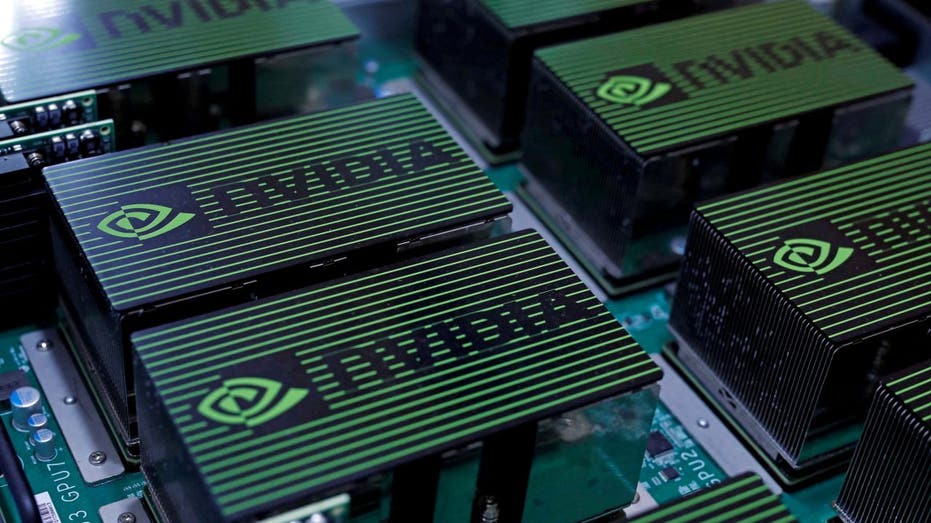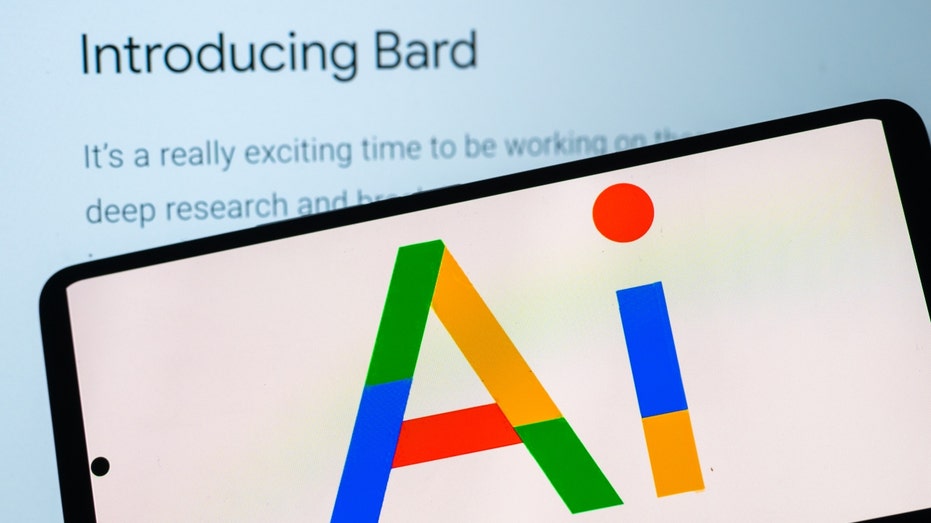Nvidia is winning AI race, but can’t afford to trip
Chip maker’s stock near record valuation as it extends lead even further with generative AI developments
What is the rationale for owning Nvidia?
Neuberger Berman senior research analyst and managing director Daniel Flax provides insight on the company's ecosystem on 'Making Money.
Perhaps no tech company, not even Microsoft or Google, is better poised than Nvidia to reap significant near-term benefits from the race to build up generative artificial-intelligence capabilities.
Here is the problem: Everyone already knows it.
Nvidia’s share price has more than doubled over the past six months. That makes it the best performing stock in the entire S&P 500 in that time. The chip maker’s market value has now surpassed that of Tesla and Facebook-parent Meta Platforms and is close to eclipsing Berkshire Hathaway—all much larger companies in terms of annual revenue. Bernstein Research also rates Nvidia as one of the most crowded stocks in the chip sector, and one of only two to remain in the most crowded decile over the past two months, according to Ann Larson, director of quantitative research for the firm.

The logo of Nvidia Corporation is seen during the annual Computex computer exhibition in Taipei, Taiwan May 30, 2017. REUTERS/Tyrone Siu//File Photo (Reuters Photos)
The bulk of Nvidia’s gains have come in the past three months, as the public launch of the AI-powered chatbot called ChatGPT in late November sparked a new wave of enthusiasm for so-called generative AI, and how it could revolutionize services like internet search, product design, writing and programming. The new technology requires intense computing power in data centers, where Nvidia has already built up a large-and-growing business for its graphics processors and software designed for AI applications. The company made a slew of announcements Tuesday as part of its annual GTC developers conference that focused mostly on the generative AI opportunities.
HOW GOOGLE BECAME CAUTIOUS OF AI AND GAVE MICROSOFT AN OPENING
| Ticker | Security | Last | Change | Change % |
|---|---|---|---|---|
| NVDA | NVIDIA CORP. | 185.41 | +13.53 | +7.87% |
| MSFT | MICROSOFT CORP. | 401.14 | +7.47 | +1.90% |
| GOOG | ALPHABET INC. | 323.10 | -8.23 | -2.48% |
Those announcements were mainly technical in nature but nonetheless impressed Wall Street. Matt Ramsay of TD Cowen characterized the event as showing "the runaway leader in AI broadening aperture further," while Mark Lipacis of Jefferies said the developments further Nvidia’s position as "the de-facto standard for AI and generative AI applications," in a note to clients. Nvidia also held an analyst meeting after Tuesday’s closing bell, where Chief Financial Officer Colette Kress said the company is seeing "more and more demand" from its major cloud customers, even compared with the strong outlook it gave in its last earnings call a month ago.

The launch of ChatGPT has set off an AI race that requires immense computing power, something Nvidia is particularly posititioned to provide. (CFOTO/Future Publishing via Getty Images / Getty Images)
That helped push the stock up more than 4% Wednesday. Nvidia’s shares now fetch just over 60 times forward earnings—a level the volatile stock has only seen once before in the past decade. That has created a bit of a quandary for analysts who are enthusiastic about Nvidia’s prospects but know all too well the cyclical nature of the semiconductor market—and Nvidia in particular. According to FactSet data, Nvidia’s stock price has jumped above 50 times forward earnings three times since late 2017, only to come crashing down on periods of gaming weakness, shifts in data-center spending and volatile swings in demand from cryptocurrency miners.
BILL GATES SAYS AI POSES THREAT TO A POPULAR SEARCH ENGINE
Will this time be any different? Nvidia’s business related to generative AI depends almost entirely on capital expenditures by the world’s largest tech giants—Microsoft and Google, in particular. Both of those have rolled out aggressive plans over the past month to incorporate generative AI into services like search and office software; Google’s Bard chatbot launched to the public on Tuesday. Tim Arcuri of UBS projected in a note last week that generative AI could add demand generally for $10 billion to $15 billion worth of graphics chips, or GPUs, over the next year or two. Analysts currently expect Nvidia’s annual revenue to top $46 billion in three years, which implies an annual growth rate averaging 20%—a notable pace for a chip maker at Nvidia’s scale.

Googles launch of Bard has only intensified the race which Nvidia is set to exploit. Google AI on a mobile phone on Feb. 9, 2023, in Brussels, Belgium. ((Photo by Jonathan Raa/NurPhoto via Getty Images) / Getty Images)
GET FOX BUSINESS ON THE GO BY CLICKING HERE
But data-center capex doesn’t proceed at an even pace. And Nvidia may face growing competition from Advanced Micro Devices, which is rolling out its own GPU chips for data centers. Still, Nvidia’s opportunity is seen as too good to pass up in the name of caution. Joseph Moore of Morgan Stanley upgraded the stock to a buy rating last week, even while noting the valuation "has moved to the stratosphere." In his report, Mr. Moore noted that "the development of generational AI is too much of a megatrend to get distracted by tactical concerns." Nvidia’s stock may be hard to bet on at these levels, but betting against the company seems unwise as well.




















